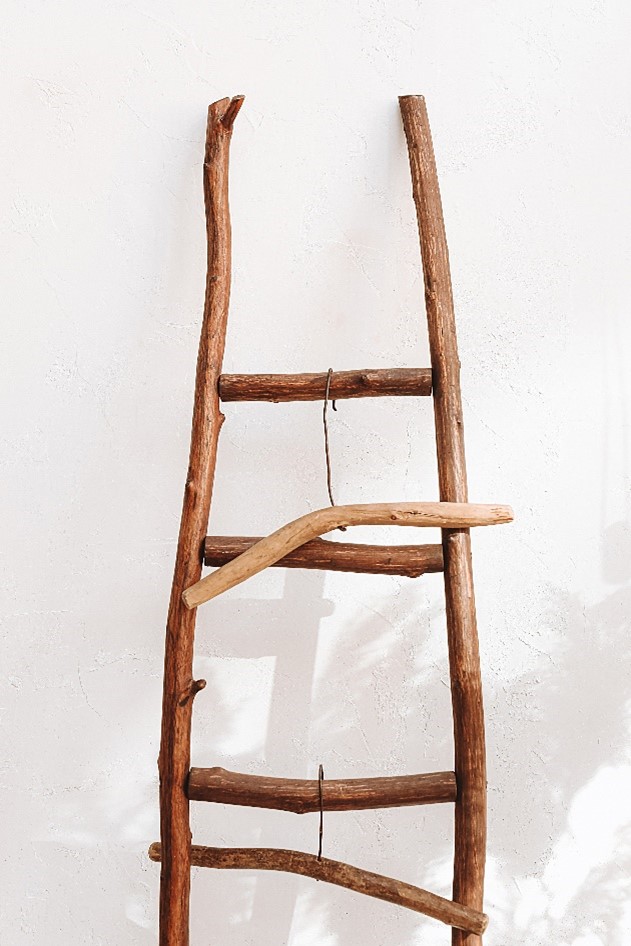Welcome to the Fork in the Road Blog: Reflections on Life musings based on my perception of life, spanning decades of active life.
In this episode I am reflecting on the process of moving up the ladder to success, or failure to take opportunities offered for assistance, for improvement in our lives using hooks and ladders as metaphors.“Hooks and ladders” may not be a commonly used idiom, but it can be interpreted as follows:
Hooks: In this context, “hooks” might symbolize strategies or opportunities that help individuals advance in their social or professional lives. These could be connections, skills, or actions that provide an advantage or “hook” for someone to move upward.
Ladders: “Ladders” represent the pathways or steps one takes to progress in their social or professional life. They signify how individuals can climb or elevate themselves in society, whether through education, career advancement, personal development, or other avenues. They are the rungs of a physical ladder.


So, “hooks and ladders” together imply a combination of advantageous strategies or opportunities (hooks) and the structured progression or pathways (ladders) that individuals use to achieve their goals and move up in various aspects of life.
Many of us have climbed trees to pick fruits or simply for pleasure or as a prank. While we might not have used ladders all the time, the principle is the same. It is one foot up followed by another with hands seeking support from branch to branch.
Success in life is often judged by how a person moves up the social or business ladder. It can be viewed academically, financially, or politically. ‘Moving up the ladder’ conjures up the virtual steps of a ladder instead of walking up or climbing up steps. In a real-world scenario, climbing up a ladder is done by pulling ourselves up, one rung at a time. Effort or energy is invested in the process. When support is provided in the process, there is a give and take between the person providing the support and the person being supported. Hooks can be seen as the foundations of our support systems with friendships, family ties, and social connections serving as hooks that anchor us in times of need.
A “missed opportunity” in the context of being supported up the social ladder at work or in life generally refers to a situation where you had a chance to advance or make progress, but for some reason, you didn’t take advantage of that opportunity. This could be due to various factors such as timing, lack of awareness, fear of failure, or simply not recognizing the potential benefits of the opportunity at the time.
Every missed opportunity can be a valuable learning experience. Maybe the missed opportunity led you to a different path that offered its own advantages and learning opportunities. Opportunities can come from unexpected places. Stay open to new ideas, experiences, and connections. Sometimes the most valuable opportunities arise when you least expect them. Missed opportunities are a natural part of life. What matters most is how you bounce back. Develop resilience and the ability to keep moving forward despite setbacks.
Missed opportunities are a natural part of life. You do not give up climbing a ladder because one hand missed a rung or a foot slipped. What matters most is how you bounce back. Develop resilience and the ability to keep moving forward despite setbacks. Work out why the foot slipped, or the hand missed a rung. Learn from the minor setbacks.
There are incredible benefits to giving and receiving and helping others up the ladder. Social support is an engaging and positive support mechanism. Everyday relationships involve interchanging parts and roles of giving and receiving. A positive relationship rarely consists of one without the other. For all the people that have been friends or role models in my life, I am touched and gratified by it. I can only hope I did them justice and, in return, supported others as they supported me. Listening and offering oneself as a soundboard through coaching and mentoring is the best way to pull and push people up the ladder.
Reciprocity is a fundamental social concept that refers to the mutual exchange of actions, favors, or gestures between and among individuals or groups. It’s the foundation of many human interactions and relationships, playing a crucial role in building and maintaining strong connections. Reciprocity operates on the principle of giving and receiving, with the understanding that when one person does something beneficial for another, the recipient is more inclined to reciprocate in some way. Unfortunately, there is negative reciprocity: the Biblical “eye for an eye” response. This type of response is in the same class as the “pull down syndrome”.
Reciprocity is deeply ingrained in human nature and is observed across cultures and societies. It helps to establish trust, build rapport, and create a sense of obligation, which contributes to the development of lasting and meaningful relationships.
The metaphor of hooks and ladders can also be used to refer to support when in need. Being there for someone in their time of need is a profoundly impactful experience that can bring about a range of emotions and contribute to a strong sense of connection and purpose. It is a supporting hook during a difficult time. It’s a way of demonstrating empathy, compassion, and support, and it can create a lasting bond between individuals as well as moving up the social or work ladder depending on circumstances.

For positive results when you step up to support someone during a challenging time, you should put yourself in their shoes and genuinely try to understand their situation. Offering a helping hand to someone in need comes as an innate human desire for compassion. It allows you to extend kindness and caring to others, which not only benefits them but also gives you a sense of fulfillment and satisfaction. Being there for someone in their time of need underscores the shared humanity that binds us all together. It reminds us that everyone faces challenges and difficult moments, and offering support highlights our interconnectedness as human beings. It reminds us further that we are not disconnected human islands.
Providing support, whether it’s emotional, practical, or both, can evoke a sense of joy that stems from knowing you’ve played a role in improving someone’s circumstances. Being there for someone in their time of need can also lead to self-reflection. This self-awareness can contribute to personal growth and development.
Every ladder has a maximum weight it can support. A virtual ladder is not different. The source of support, whether it is push or pull support, must set healthy boundaries while being supportive for maintaining its own well-being and preventing burnout. While it’s important to be there for others, it’s equally important to prioritize your own mental, emotional, and physical health. It is crucial for the recipient of the support to be mindful of the limits of the support source.
Support up the ladder demands communication between the person offering support and the person supported. I define communication as the exchange of information, verbal or otherwise, among parties, in such a way that all parties understand the message and can respond to it. When offering someone a helping-hand up the virtual ladder it’s essential to ensure that there is communication as earlier defined. Offering vague recommendations doesn’t help anyone. When giving or receiving advice through communicative interaction both sides benefit.

I have so far been addressing mutually agreed support up the virtual ladder. We need to look at the ladder itself. In many instances the ladder is of people who are stepped on to move up socially, politically, financially etc. Global economies and so-called developed countries are what they are at the expense or misery of other countries. History is replete with examples of this nature, such as the slave trade where the sellers and buyers of human cargo climbed up financially using humans as the ladder’s rungs. The fact is that “you” cannot “move up” without stepping on “something”. Let the “something” not be fellow human beings. Yet, there are no hooks in the sky with climbing ropes to haul oneself up.
There will always be opportunities for people pulling and pushing us up the ladder. We should do the same for others. We should, though, be mindful of people using us as steppingstones for their selfish ambitions.
Thank you for being part of the Fork in the Road Blogs: Reflections on Life. Look out for the next episode when I will be writing about Goodbye. And if you gathered something useful, please feel free to share the blog. My books, Fork in the Road: Creating a future of value starting from where you are and A view round the bend. Setting goals for your life’s journey are available for purchase at Aristoc bookshops in Kampala, Uganda and online at Amazon.
Your comments on my musings are most welcome and let me know whether there is a topic you would like me to muse over. Cheers.


Comments (8)
Shem Nnaggenda Nsubuga
Its nice if u are used as a stepping stone by one who achieves and does good for others and humanity. Sometimes it takes a while to realise you are an unwilling stepping stone for others
Rtn Stephen
And then it may be too late to stop being exploited. I agree it is a good feeling when you see that you have provided a means of advancement to someone. It is so fulfilling.
Mary O
The fact is that “you” cannot “move up” without stepping on “something”. Let the “something” not be fellow human beings.
This helps make sense of why people take advantage of the disadvantaged. They are looking for a stepping stone, unfortunately most often it is a fellow human being.
Rtn Stephen
True and yet how sad!
Namakula
I read this piece of writing and came to appreciate you even more. “For those who much has been given, much is expected of them” Or….something like that. Over the years, you have given, cared for others, donated resources and time, etc. You are my kind of hero! May God always bless you and yours.
Love,
Namakula owolugave.
Rtn Stephen
Thank you Mwana wa Mmange. Your appreciation is not taken for granted.
MNL
Another insightful blog. Thank you. I’m reflecting on this: ‘Maybe the missed opportunity led you to a different path that offered its own advantages and learning opportunities’.
Rtn Stephen
It is not always a total lost cause. Put aside the missed opportunity and look forward for new opportunities.